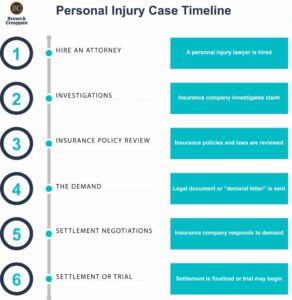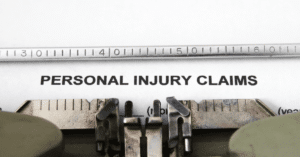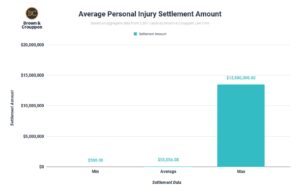If you or a loved one was injured in a bicycle accident with another vehicle, you may be eligible to recover compensation if the driver was negligent. In Missouri, the statute of limitations for most bicycle accident lawsuits is 5 years, which means you have 5 years from the date of your bike accident to file a lawsuit or your lawsuit will be forever barred.
Missouri Bicycle Laws
In Missouri, there is a common misconception that bicyclists do not share the same rights to the roadways as motorists. However, traffic laws followed by a vehicle must also be followed by a bicyclist. Bicyclists must stop at red lights, yield to pedestrians, use a turn or hand signal to indicate turning, and ride on the right-hand side of the road and in the same direction the vehicles are required to drive. Further, bicyclists must refrain from riding on the sidewalk and bike lanes must not be obstructed by any parked motor vehicle or any stationary object. While bicycles and vehicles generally share the same rights on the roadway, there are certain situations where the rules differ. For example, bicyclists are not permitted to travel on interstate highways and specific areas designated as prohibited by local law.
When it comes to bicycle equipment laws, Missouri requires lights and reflectors to be used from 30 minutes after sunset to 30 minutes before sunrise. Additionally, the front-facing lamp must emit a white light that is visible from 500 feet and a rear-facing lamp visible from 600 feet (no stipulation on color).
Lastly, it is important to remember that while Missouri has no statewide law requiring bicyclists to wear a helmet, most cities and counties within Missouri require them.
How is Fault Determined in a Bicycle Accident?
1. Negligence
- The driver owed you a duty of care;
- The driver breached their duty;
- The driver caused the collision (or most of it); and
- Due to the collision, you suffered financial, physical and/or emotional losses.
2. Poor Road Conditions
In some cases, the collision may be caused by other factors such as poor road conditions. Municipalities have a responsibility to ensure the streets, bike paths, and walkways are passable and safe for those traveling through. When a defective or poorly maintained road increases the risks of an accident, government entities may be held accountable for their negligence. Poor road conditions most likely to cause damage to your bike include:
- Potholes
- Missing barriers and guardrails
- Shoulder drop-offs
- Poorly maintained ice and snow
- Poor road design
- Wheel ruts
- Unsafe construction zones
3. Defective Bike Parts
In other situations, bicycle accidents may be caused by defects or faults with the bike parts or the bike’s design. If your bicycle accident was due to a defective product, the manufacturer, distributors, and retailers may be held responsible for the injuries and harm their defective or dangerous products have caused. Both bicycle and motor vehicle manufacturers are required to design and manufacture safe products. If a safety hazard arises, recalls must be issued, and the failure to do so may result in liability upon the manufacturers.
4. Comparative Negligence
Comparative negligence is used to calculate the amount of compensation a person may receive for damages caused by an accidental injury. If a person has any responsibility for causing the accident that resulted in the injury, any compensation owed to the victim is reduced by the percentage of fault assigned to that person for causing the accident.
For example, a bicyclist is injured in a traffic collision with a car. After a trial, the jury determines that the driver of the car is 80 percent at fault for causing the collision and the bicyclist is 20 percent at fault. If the bicyclist’s damages total $100,000, the maximum amount the bicyclist may receive for the injury claim is $80,000 (total damages less 20 percent assigned fault).
Insurance Coverage for Bicycle Accidents
Recovering Compensation After a Bicycle Accident
If you can successfully hold a negligent car driver responsible for your bicycle accident, you could potentially recover a range of compensation depending on the severity and permanence of your injuries. The most common compensation recovered from bicycle accidents include:
- Physical injuries
- Scarring/disfigurement
- Property damage expenses
- Emotional distress
- Wage loss
- Loss of consortium
- Disability
- Pain and suffering
- Rental vehicle
The average bicycle accident claim is between $10,000 and $100,000, but can vary based on many factors. If you or a loved one has been injured in a bicycle accident, you may be eligible to recover compensation. The St. Louis and Kansas City bicycle accident lawyers at Brown & Crouppen can help you find out if you’re eligible to recover financial compensation after an accident.
Getting started with your case is easy. Request a free case evaluation online or get help from our legal team by calling us at 888-795-0694 for a free consultation.








